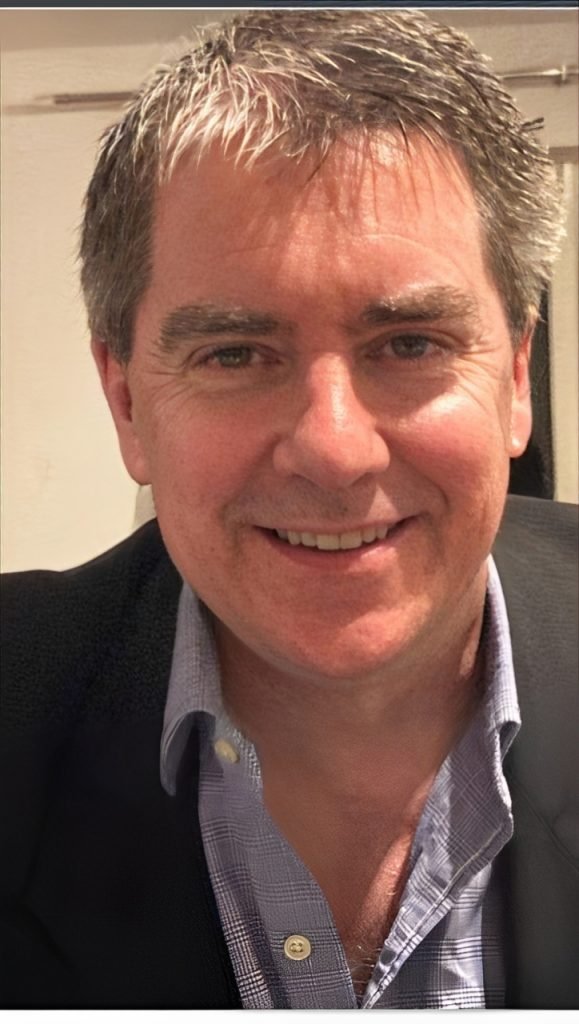James Douglas-Mann

Author's story
James was born in London in September 1963 and attended boarding schools from the age of 10 between 1973/1981.
After school, he spent a year in Lloyds of London as a bloodstock claims insurance broker before travelling to Australia via Hong Kong. In Hong Kong, he was nearly murdered by a machete-wielding Chef, having strayed into an insalubrious part of town in the hope of finding a cheap hotel. He was miraculously rescued by a passing taxi driver who drove him to the upmarket Hilton hotel, where he spent the rest of his short stay before the next leg of his trip to Australia.
While in Hong Kong, he visited both Sha Tin and Happy Valley racecourses, and then Randwick, Rosehill and Flemington when arriving in Australia.
He returned to London in 1982 where he joined the merchant Bank, Morgan Grenfell as a junior equity dealer. He was transferred to the jobbing firm Pinchin Denny on the floor of the London Stock Exchange as a ‘blue button’, the lowest of the low. Here he achieved the rare feat of being the only blue button in history to be ‘headhunted’ by a rival firm, namely Bisgood Bishop. At Bisgood, he soon graduated to ‘dealer’ in the London Traded Options market, situated on the floor of the London Stock Exchange. Bisgood were taken over by County Nat West as part of the Big-Bang deregulation in October 1986.
On Wednesday 14th October 1987, James headed out to Tenerife for a lads holiday only to be awoken the following Monday by a call from his London boss with orders to return to London immediately. Pandemonium was raging across world financial markets. James had left work with substantial gearing on his books, meaning a huge fall of this nature would yield enormous profits. He and his colleagues at County Nat West saved the Bank’s trading division from oblivion. He had finally made a name for himself.
He left County Nat West for Hoare Govett in 1990 where he was appointed head of Traded Options market making. After several successful years he decided to forgo corporate life and branch out with his own money as a ‘local’ trader on the London International Financial Futures exchange, a decision he would deeply regret. The success that he’d enjoyed until that point was soon to change to disaster. On LIFFE James lost heavily. He lost the self-discipline required by his previous employers, resulting in heavy losses in financial futures. He compounded these losses by gambling on horses and greyhounds. He borrowed heavily, leading to further debt, getting dumped by his girlfriend and his father dying all in the same period. He realised he had to change direction. James needed to re-enter employment.
It wasn’t just the money he’d lost, it was his reputation too. He found the doors closed to him as a trader with the likes of Goldman Sachs, Morgan Stanley and Deutsche Bank. He’d always considered traders to be more prestigious than Brokers or Salesmen yet now he had no choice but to utilise his large address book. Throughout his career, he’d made a wide circle of contacts, many of whom now held senior positions at Investment Banks. These were to prove his saviour. With an array of Banks, Bookmakers and an intimidating loan shark after him, he joined Tradition, a large Broking house specialising in Over the Counter options. Not only were the contacts extremely useful to Tradition, his previous trading experiences, both good and bad, held him in good stead. He understood his product better than any of his new colleagues.
Ten years at Tradition saved James. His debts soon dissipated. He started going racing again, but in a disciplined way. He befriended a well-known and highly successful racing tipster who taught him betting angles that he’d never previously considered. For the first time in his life he started winning consistently. Holidays were taken for Royal Ascot, Cheltenham and Goodwood, with a week left over for an annual visit to the Cote d’Azur in the South Of France.
At 40, whilst recovered financially and happy (he married in 1999), he felt a common condition experienced amongst City traders and brokers of a certain age-burn out. He’d lost some of the aggression and spark that had given him an edge over his rival brokers in previous years, and in 2004 he made another life-change. He left Tradition and spent a year working for a friend’s recruitment company in Soho, specialising in the hiring of Traders and Brokers. He started his own firm the following year which he ran until retiring in 2018.
In Toxic Options James has recreated many of the scenes from his younger life. They stem from a culture of heavy drinking and gambling, and tales of derring-do both from the Stock Exchange floor in the 1980s and the racecourse. In Toxic Options he uses characters from both ends of the social spectrum. They include both heroes and rogues, Insider dealing, wild gambling, and one of the features of the time, terrorism. Toxic Options is fictional but based on many of the themes and characters the author witnessed in his 20’s and early 30’s.